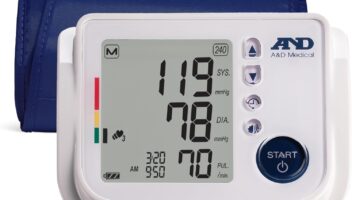PTSD vs. Acute Stress Disorder: Navigating the Differences and Finding Hope 💪
When we hear the acronyms PTSD and Acute Stress Disorder (ASD), it’s easy to mix them up, given their similarity. However, understanding the differences between these two can make a world of difference, especially when seeking the right treatment. This blog explores the key distinctions between PTSD and ASD, shares personal anecdotes, and sheds light on the benefits of online therapy treatment. And remember, hope is just around the corner! 🌟
What is PTSD?
Post-Traumatic Stress Disorder (PTSD) is a mental health condition triggered by experiencing or witnessing a traumatic event. The symptoms often last for a prolonged period and can severely impact daily life.
Key Symptoms of PTSD:
- Flashbacks or intrusive thoughts about the traumatic event
- Nightmares and severe anxiety
- Hyper-vigilance and being easily startled
- Emotional numbness or detachment
Imagine trying to go through a regular day while constantly being pulled back into a nightmare. That’s what living with PTSD can feel like.
What is Acute Stress Disorder?
Acute Stress Disorder (ASD), on the other hand, is a mental health condition that occurs shortly after a traumatic event, usually within three days to one month. Its symptoms are somewhat similar to PTSD but generally resolve within a shorter time frame.
Key Symptoms of ASD:
- Intrusive memories or distressing dreams
- Avoidance of reminders of the trauma
- Difficulty concentrating
- Increased arousal or anxiety
Think of ASD as the body’s immediate response to an overwhelming event, kind of like an emotional aftershock.
Key Differences Between PTSD and ASD 🔍
Duration:
- PTSD: Symptoms last for months or even years after the traumatic event.
- ASD: Symptoms appear immediately after the event and generally subside within a month.
Onset:
- PTSD: Symptoms can begin at any time after the trauma has occurred.
- ASD: Symptoms start immediately after the trauma, usually within three days.
Treatment Responses:
- PTSD: Often requires long-term therapy and sometimes medication.
- ASD: Can significantly benefit from brief, early intervention such as cognitive-behavioral therapy (CBT).
Personal Perspective: A Journey Towards Healing 🌸
When I experienced a car accident a few years ago, I initially found myself overwhelmed and distraught. For weeks, I couldn’t sleep and found it difficult to resume normal activities. Through connecting with a therapist, I was informed that I had Acute Stress Disorder (ASD). Early treatment helped me tremendously, and within a month, I started feeling like myself again.
Conversely, my friend Lucy who served in the military struggled with PTSD after returning from active duty. Her journey was different. Through regular therapy sessions and support, she slowly began reclaiming her life.
Both of us had different paths but discovered that help was available and hope was real.
The Benefits of Online Therapy Treatment 🌟
Online therapy offers amazing benefits for people dealing with PTSD and ASD:
- Accessibility: Speak to a professional from the comfort of your home.
- Flexibility: Schedule sessions that fit your lifestyle.
- Privacy: Enjoy confidentiality and feel secure.
Feeling overwhelmed by PTSD or ASD? Discover https://onlinetherapy.go2cloud.org/aff_c?offer_id=2&aff_id=3714&aff_sub=ptsd&aff_sub2=1 to find the right treatment that can guide you towards hope and healing.
Charting the Differences 📊
| Aspect | PTSD | Acute Stress Disorder (ASD) |
|---|---|---|
| Duration | Several months to years | Up to one month |
| Onset | Any time post-trauma | Immediately post-trauma (within 3 days) |
| Symptoms | Flashbacks, nightmares, hyper-vigilance | Intrusive thoughts, avoidance, sleep issues |
| Treatment | Long-term therapy, medication | Brief, early intervention, CBT |
| Emotional Impact | Long-term emotional and functional distress | Short-term significant distress |
Questions You Might Have (FAQ) ❓
1. Can ASD turn into PTSD?
Yes, if acute stress disorder is left untreated and symptoms persist beyond a month, it can develop into PTSD.
2. Is one more severe than the other?
Severity can vary for each individual. While ASD is typically short-term, the symptoms can be intense. PTSD, however, can have a more prolonged and severe impact on one’s life.
3. How can I support a loved one with PTSD or ASD?
- Listen: Sometimes, all they need is a listening ear.
- Encourage: Gently encourage seeking professional help.
- Provide Resources: Share information about online therapy, like this helpful link: https://onlinetherapy.go2cloud.org/aff_c?offer_id=2&aff_id=3714&aff_sub=ptsd&aff_sub2=1.
In essence, while PTSD and ASD may sound similar, their treatment and implications can differ significantly. Recognizing these variations allows for a tailored approach to mental well-being. Remember, facing trauma is challenging, but you’re not alone. There’s always a pathway to hope, and sometimes, all it takes is a click to start.
Let healing begin with online therapy today!
Stay hopeful and stay connected. 🌼
Disclosure:
Hospitals.net is a participant in the Amazon Services LLC Associates Program, an affiliate advertising program designed to provide a means for sites to earn advertising fees by advertising and linking to Amazon.com, .ca, .co.uk, etc.
AI Disclaimer:
Hospitals.net uses artificial intelligence (AI) tools to assist in gathering and summarizing product information, including reviews and other relevant data for Amazon products and services. While we strive to ensure the accuracy of the information provided, AI-generated content may not always reflect the most up-to-date or accurate details. The information on our site should not be considered professional advice, and users are encouraged to verify any product details directly with Amazon or other official sources before making a purchase.
We do not guarantee the completeness or accuracy of the AI-generated content and are not liable for any discrepancies or errors. Any reliance on the information provided is at the user’s own risk. By using this site, you acknowledge that product availability, pricing, and other details may change over time, and Hospitals.net is not responsible for these changes.
Health Disclaimer:
The health products and information provided on Hospitals.net are for informational purposes only and are not intended to substitute professional medical advice, diagnosis, or treatment. Always consult a qualified healthcare provider or medical professional before using any health products or following any advice you find on this site. The content on Hospitals.net, including product recommendations and reviews, is not a substitute for individualized care from a healthcare provider.
We make no warranties or representations regarding the effectiveness, quality, or safety of the products listed on our site. Any use of these products is solely at your own risk. Hospitals.net is not liable for any harm, injury, or adverse effects that may result from the use or misuse of the health products or information provided.
Please read all product labels, warnings, and directions provided by the manufacturer before using any product. If you have any questions about a product or its suitability for your condition, we recommend contacting the manufacturer directly or consulting a healthcare professional.
If you have any concerns regarding the accuracy of the information on this site, please contact us for further clarification.



